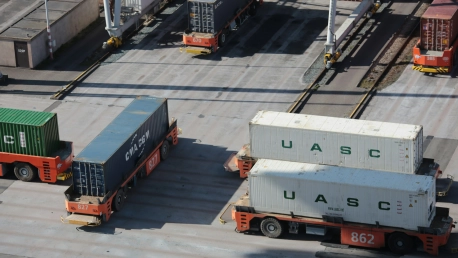The logistics industry is witnessing a pivotal transformation ushered in by the digital age, with mobile technology at the forefront of this shift. The increased reliance on digital tools marks a significant turn away from the traditional, manual methods that have long defined the sector. As companies adapt to the evolving digital landscape, mobile applications are becoming indispensable tools for efficiency, transparency, and customer satisfaction.
The Emergence of Digital in Logistics
Setting the Stage for Transformation
Long rooted in manual operations, the logistics industry has historically been characterized by methods that, while reliable, were inefficient and costly. Labor-intensive processes, involving extensive paperwork and coordination, often led to bottlenecks and errors. These traditional practices, in an industry deemed the backbone of global trade, have been ripe for reinvention for some time.
Digital and Mobile Technology: The New Normal
The advent of digital and mobile technologies has brought about a paradigm shift. As underlined by a McKinsey report, there is a surge in SCM technology investments, reflecting a broad acknowledgment within the industry of the need to embrace digitalization. The proliferation of mobile apps is not just an industry trend but the new operational standard, offering tools for managing complex supply chains with unprecedented agility and insight.
Enhancing Efficiency in the Supply Chain
Real-Time Tracking and Dynamic Scheduling
Mobile applications are transforming logistics through functionalities like real-time tracking and dynamic scheduling. These features allow for rapid responses to unforeseen delays and make logistics operations more adaptable to changing conditions. The ability to track shipments in real-time reduces the dependence on guesswork, ensuring that goods move through the supply chain with improved precision and speed.
Route Optimization and Customer Satisfaction
Moreover, logistics companies are utilizing mobile apps to revolutionize delivery routes, finding the most efficient paths for transport and enhancing customer satisfaction in the process. As routes are optimized, companies generate substantial cost savings and improve delivery times—factors directly contributing to a positive customer experience. This optimized performance, coupled with better transparency, fosters customer trust and loyalty.
Overcoming Traditional Logistics Challenges
Communication and Visibility Breakthroughs
Historically, the logistics industry struggled with communication gaps and a lack of visibility throughout the supply chain. Thankfully, mobile technology offers a solution, enhancing communication channels and providing a bird’s-eye view of operations. This increased visibility not only streamlines coordination but also reduces the errors associated with manual data transmission and tracking.
Unifying Systems for Increased Efficiency
Mobile technology further aids in reducing complexities by allowing different systems to work together more efficiently. By consolidating various functions into one user-friendly platform, logistics companies are soon finding that accurate data and efficient operations are within reach. Such integration is proving essential for staying competitive in today’s fast-paced market.
Empowering the Deskless Logistics Workforce
Access to Critical Information
Frontline logistics workers, often on the move or away from desks, are gaining unparalleled access to information thanks to mobile tech. This on-the-go access minimizes the time spent on administrative tasks and empowers the workforce with the data needed to solve problems swiftly, thereby boosting overall efficiency and reducing the potential for costly mistakes.
Boosting Productivity and Job Satisfaction
By equipping the logistics workforce with mobile solutions, organizations are noticing a marked improvement in productivity and job satisfaction. As tasks become less cumbersome and more intuitive, workers are able to focus on value-adding activities rather than tedious administrative details, resulting in a more engaged and productive workforce.
Investing in Mobile Technology for Strategic Advantage
Immediate Benefits and Long-Term Optimization
Investing in mobile technology offers logistics companies not just immediate enhancement of their operations but also sets the stage for long-term optimization. From improving day-to-day logistics management to positioning operations for future scalability and adaptability, the strategic importance of adopting mobile tech cannot be overstated.
Integrating Emerging Technologies
As the logistics industry looks ahead, integrating mobile platforms with emerging technologies like IoT and AI-powered analytics represents the next step in its evolution. This synthesis foretells a future where logistics operations are not just effective but also prescient, capable of predictive maintenance and informed decision-making through real-time data analysis.
The Imperative of Mobile Technology Adoption
Keeping Pace with Evolving Industry Trends
The accelerating pace of technological advancements makes the adoption of mobile applications a necessity for logistics businesses intent on remaining competitive. Companies leveraging mobile tech find themselves at an advantage, achieving not just cost savings but also improved customer relations—a direct byproduct of efficient and transparent SCM practices.
Positioning for the Digital Future of Logistics
As we stand on the cusp of a digital future in logistics, it is apparent that the transformation is well underway. For businesses in the sector, the strategic use of mobile technology is not a choice but an imperative to ensure they are ready to meet the demands of tomorrow. The opportunity to define logistics with innovation and efficiency is now, and it is imperative companies act swiftly to harness the full potential of mobile solutions.









